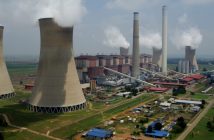- The Norwegian Agency for Development Cooperation (NORAD), has committed to provide grant funding to the African Trade Insurance Agency (ATI), valued at NOK 500m (approximately USD 56m).
- The grant is geared towards the continued implementation of ATI’s Regional Liquidity Support Facility (RLSF) and the development of additional insurance or guarantee products in support of small and medium sized renewable energy sector initiatives.
- RLSF was created in 2017 to help tackle climate change and attract additional investments by supporting renewable energy projects in sub-Saharan Africa.
The Norwegian Agency for Development Cooperation (NORAD) has committed to provide grant funding to the African Trade Insurance Agency (ATI), valued at NOK 500m (USD 56m), allocated over an initial period of 5 years. The grant will be geared towards the continued implementation of ATI’s Regional Liquidity Support Facility (RLSF), which aims to mobilise private investment into renewable energy projects in Africa while contributing to the achievement of Sustainable Development Goals 7, 8 and 13, and the development of additional insurance or guarantee products in support of small and medium sized renewable energy sector initiatives. The funding from NORAD, which will be split across first loss cash collateral for the various initiatives and technical assistance support for ATI, will be provided by the Norwegian Ministry of Foreign Affairs.
RLSF was launched in 2017 by ATI and KfW, the German Development Bank, to address short-term liquidity risks in financing of small and medium sized renewable energy projects in sub-Saharan Africa, by combining ATI’s suite of insurance products with a liquidity support instrument. The RLSF policy is used in lieu of (or to complement) the buyer payment security provided by state-owned offtakers under Power Purchase Agreements (PPAs) entered into with Independent Power Producers (IPPs). The risk addressed by the RLSF policy is the delay in payment by the offtaker beyond the credit period provided in the PPA.
Since its launch, RLSF has supported four landmark solar projects in Burundi and Malawi – enabling over USD 150m in project financing and a total installed capacity of 108.5 MW. Beyond RLSF, ATI has supported other renewable energy projects across its member countries, enabling an installed capacity of over 500 MW. ATI’s current gross exposure in direct support towards generation of renewable energy transactions stands at USD 210 million – with the grant and support from NORAD, this exposure is poised to increase significantly in the long term.
RLSF can be accessed by IPPs located in ATI member countries that sign onto the RLSF Memorandum of Understanding (MoU). To date, Benin, Burundi, Côte d’Ivoire, Madagascar, Malawi, Uganda and Zambia have already signed the MoU with the expectation that more of ATI’s twenty member countries will follow. In addition to having access to RLSF, IPPs operational in these countries are able to register for the Transparency Tool. The Transparency Tool is a web-based platform designed to show payment trends of public utilities – over time, the tool is expected to bring greater transparency to the sector and potentially increase the confidence of investors and other stakeholders.
In addition to providing support towards RLSF, a portion of the grant will be deployed towards the development of additional guarantees or insurance instruments. These new instruments will have a particular focus on the off-grid sector and other eligible forms of distributed renewable energy. A virtual launch ceremony will be held on 1st March 2022 at 1500hrs EAT (1300hrs CET) to formally announce this new cooperation between ATI and NORAD.
Author: Bryan Groenendaal











